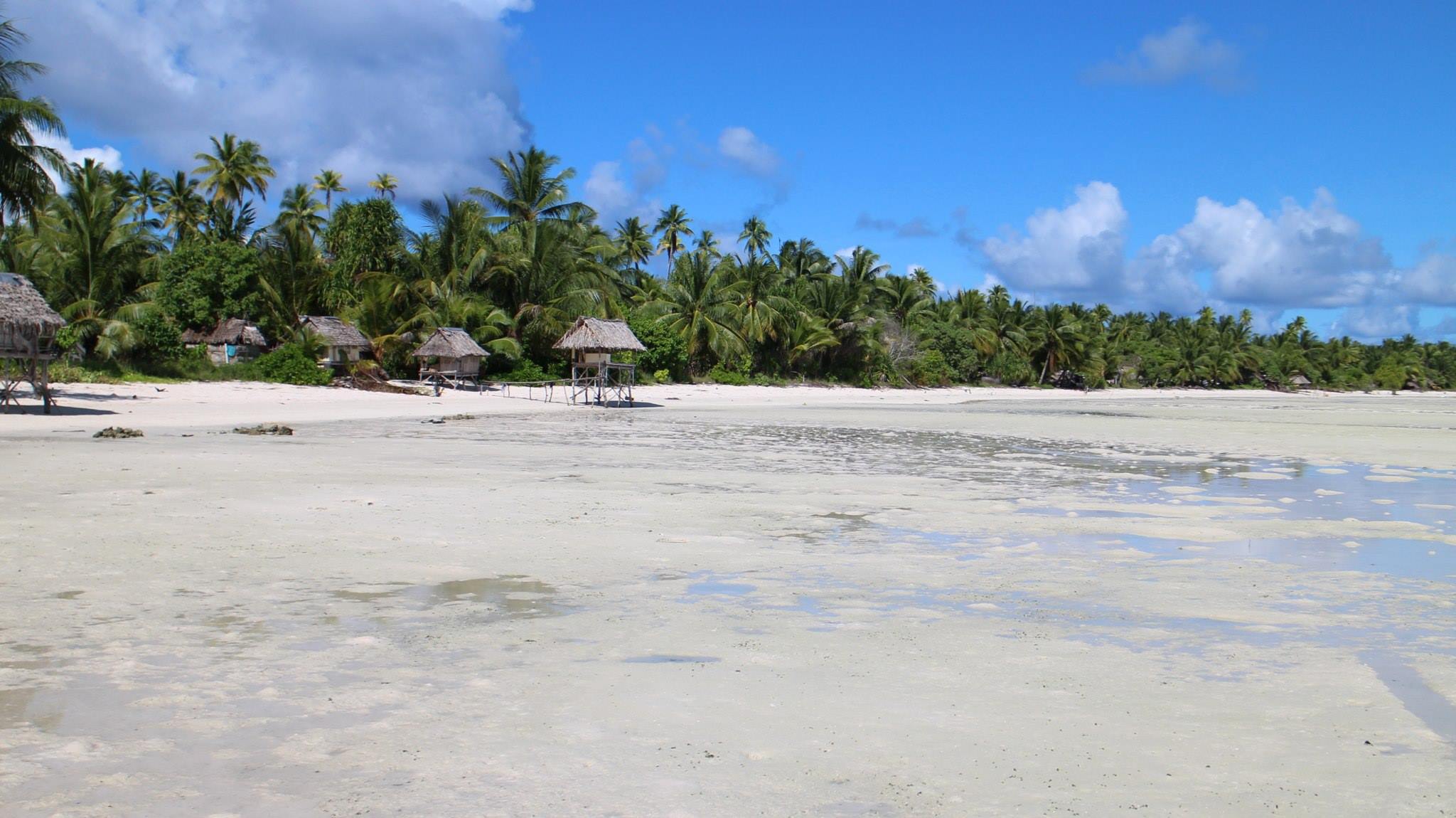Janice Cantieri: Fulbright National Geographic Fellow Discusses The Importance of Responsible Storytelling
Janice Cantieri, freelance writer and researcher, pictured with I-Kiribati children.
"There’s a way that journalism can connect people rather than contribute to more division and polarization.”
Freelance writer and researcher, Janice Cantieri, believes in generating positive change through storytelling. After traveling and writing about indigenous communities in India, British Columbia and the Pacific Islands, she noticed that lesser-known populations often face the danger of a single story narrative. As renown author Chimamanda Ngozi Adichie warns in her famous Ted talk, hearing a single story about a country often leads to damaging stereotypes and critical misunderstandings about that country. Armed with this knowledge and inspired by the work of the Solutions Journalism Network, Janice is focused on promoting responsible journalism practices by educating her audience and mindfully portraying communities.
The Art of Storytelling: Exposing Truths
Tarawa, Kiribati
A few years ago, as a Pulitzer Center on Crisis Reporting fellow, Janice had the opportunity to report on Kiribati’s adaptation to climate change and the rising sea levels. After a few weeks of research, she promptly noticed a discrepancy between the truth and what was being portrayed in the media. Many articles described the Kiribati community as people eager to migrate from their disappearing island. However, the people she interviewed expressed a different sentiment.
"Yes, there are severe challenges that people are facing because of sea levels rising, but what was not being captured in articles was how resilient people are and how creative they are in adapting to an existential crisis. That was eye-opening to me."
Furious at the single story narrative about Pacific Islanders perpetuated in the media, she successfully applied to the prestigious Fulbright National Geographic Storytelling Grant, which allowed her to continue her investigative reporting in Kiribati and Fiji in 2015-2016. Soon after publishing her work, she was humbled to see the impact of her articles on readers.
"Sharing these stories made people listen and connect to a place on the other side of the world that most people don't know about. People in my hometown were listening to me and wanted to hear more stories about this place."
Storytelling As An Indigenous Ally
Since she works primarily with people whose lives and culture were disrupted by colonialism, Janice is the first to acknowledge her own privileges. With this in mind, she strives to write articles that respectfully reflect the interviewee and their community.
“As a white person from the States traveling and collecting stories and writing stories, I need to be aware of that so I’m not perpetuating those sorts of colonial narratives.”
What does Janice hope to see in the future of journalism? Articles that inform readers, promote discussion and authentically portray communities.
"People assume that journalists always have an agenda or motive for doing a story. I’m personally interested in listening to people, capturing their stories and presenting that as accurately as I can. Yes, I get to choose who I want to write about, that’s my choice, and that affects the story, but when I’m with people, it’s their story that I’m telling.”
Tips for Aspiring Journalists
1. Keep an open mind when going to report—often, the story is different than the assumptions you might have had.
2. Be flexible, and be open to finding stories anywhere. I was stranded off-the-grid for two months on Banaba island and ended up coming away with some of the best stories and life experiences I’ve had.
3. Try not to be a parachute journalist. Maintain connections with people you report on, don’t just fly in for a week, take stories and leave. Try to bring your humanity with you wherever you go.
Follow Janice’s work at janicecantieri.com and @janice.cantieri
Author
Marushka Hirshon is a Tahitian-American nonprofit founder, community organizer and freelance journalist. She graduated from Stanford University with a B.S. in Science, Technology and Society with a focus in Environment and Sustainability. Follow



